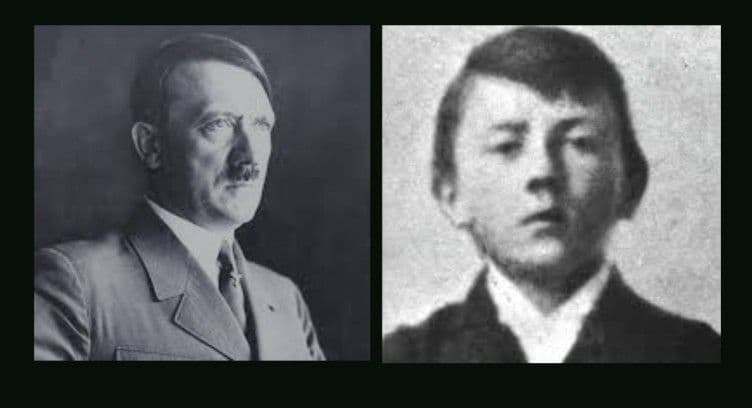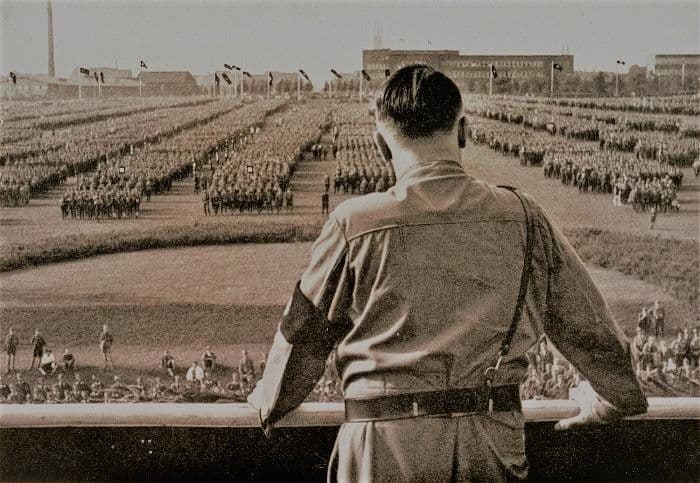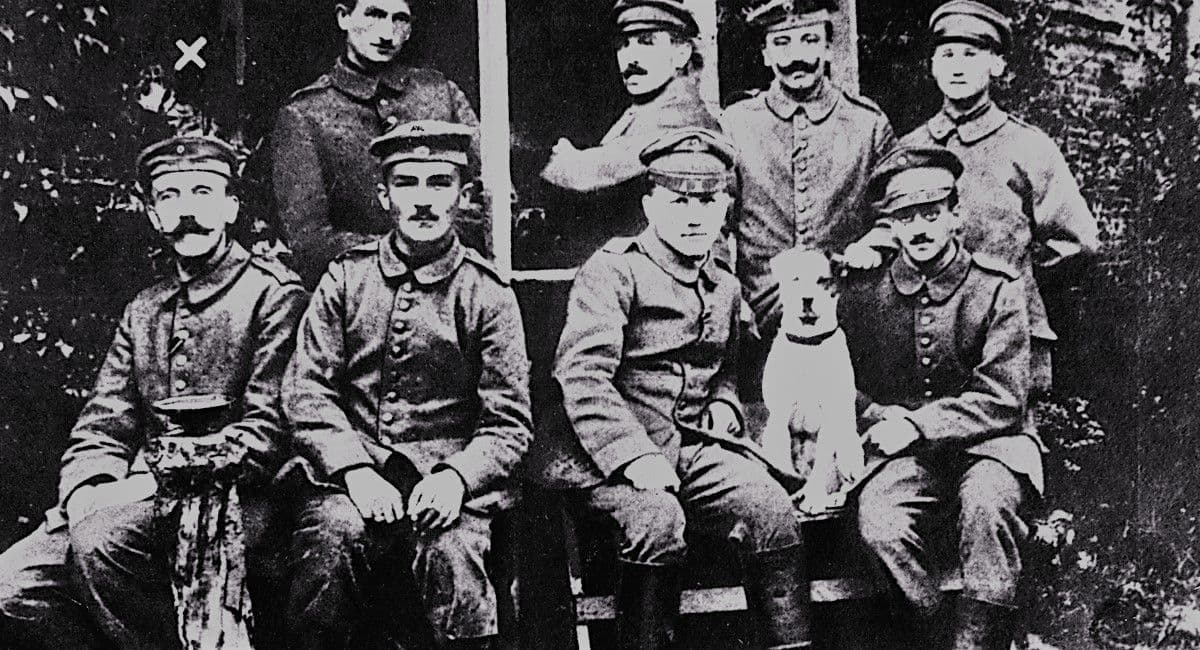Golsar Akash
2021-12-03
Why Adolf Hitler a Great Leader?
"You do not have to explain if you win. You should not have to explain if you lose"!! - Adolf Hitler

In my opinion, a good leader must possess three main characteristics; the ability to move a nation with their ethical speeches and civic-minded, the ability to think about and plan for the future of their people and nation, and the ability to command the nation's forces correctly.
Adolf Hitler (20 April 1889 – 30 April 1945) was an Austrian-born German politician who was the dictator of Germany from 1933 until he died in 1945. After rising to power as a leader of the Nazi Party, becoming the chancellor in 1933 and then assuming the title of Führer und Reichskanzler in 1934. Hitler was born and raised near Linz, Austria, which was part of Austria-Hungary at the time. His mother's name was Klara, and his father's name was Alois Hitler. After getting married twice and having children, Alois Hitler married his third wife, Klara Polzl. According to historians, during WWI, Hitler avoided enlisting in the Austro-Hungarian army. He claimed later that the 'mixture of races' in the Austro-Hungarian army played a role in his decision. As an Austrian citizen living in Munich at the outbreak of WWI, he joined the Bavarian Army. On the Western Front in Belgium and France, he served as a dispatch runner or messenger with the Bavarian Reserve Infantry Regiment 16. As a German Army member during World War I, his service was decorated. Adolf Hitler's military career was divided into two distinct parts during his life. He was most famous for his service as a lance corporal in the Bavarian Army during World War I and as the leader of Nazi Germany during World War II as Supreme Commander-in-Chief of the Wehrmacht (German armed forces). Hitler is considered one of history's most notorious leaders. One of the most protuberant questions that arise is whether he was a great leader despite being viewed by many as one of the most villainous people of all time.
The nation comes first: Hitler viewed his country negatively and wanted to change it. His idea was to rebuild, strengthen, and bring prosperity back to Germany, which he felt was weak and taken advantage of constantly. Despite being pushed back and scrutinized in many ways, he felt he was doing what was most beneficial for his country. As he acted in Germany's interest, he continued to ignore citizens and other countries who expressed concerns about the effects of his methods and vision.

Future perception for Nation: Hitler was the undisputed National Socialist German Worker Party leader, also known as the Nazi. The trail made him famous and gained him, followers.
Hitler focused on creating a "supreme race". A race that was strongly built to last and that looked similar to one another. Essentially, a world with perfect humans- in his eyes. As chancellor of Germany, he became obsessed with ideas about race. Hitler propagated his views on racial "purity" and the superiority of the "Germanic race" - what he called an Aryan "master race" - in speeches and writings. He decreed that his race must remain pure in order to one day conquer the world. Nazi Germany envisioned the ideal "Aryan" as blonde, blue-eyed, and tall. During the Nazi era, these beliefs became the official government ideology and were displayed in public, broadcast on radio, portrayed in movies, and taught in classrooms. The Nazis promoted health-conscious policies. Therefore, You may not be surprised to learn that Hitler was reportedly a teetotaler, a nonsmoker, and a vegetarian. Volkswagen was established in 1937 by Nazi leader Adolf Hitler as part of his vision to get German families a car. In the fallout of World War II, he implemented laws intended to protect wild animals, cattle, and chickens and to reduce meat consumption by the Germans.
The economy and Germany's military were used to measure Hitler's success, along with the number of supporters. Overconfidence in himself and his opinions was where he failed. His commanding officers advised against many of his tactics because he believed the enemy was weaker than he thought. A wheelbarrow full of money in Germany would rarely buy a loaf of bread due to high inflation levels. He built up what appeared to be an excellent economy, but the money was essentially worthless due to high inflation levels. Germans found him incompetent, delusional, and arrogant for not inspiring them without using fear. He had mastered the art of disguise and diverted attention from his damaging shortcomings to other issues that plagued his country. "Integrity and Leadership quality of Hitler that made him a Great Leader"!
Truthfulness - Adolf Hitler was honest with his aim, with his relatives, friends, country people, and himself. A life spent as a dictator did not include any money-laundering. He died without any possessions. The man always said, "Germany is my first love," and he lived for it and died for it. When Adolf Hitler took power, the only asset he had was his ability to communicate well. Although, he did not have any political background family or a princely dynasty, he reached these heights because of his exceptional communication skills.
Delegation - Although there might be some differences of opinion on this point, Adolf Hitler indeed had a full-fledged ministry to assist him. Obviously, the final decision rested with him. Sometimes he accepted their ideas even when he was not entirely convinced. Berlin 1936 is a good example. Because he felt it would be a waste of time, he opposed holding the games in Germany. He eventually allowed the games when Gobbels, convinced him of their usefulness as a way to make new friends. Berlin Olympics was an outstanding event. Those games were held in a country that lost a world war in 1918. His delegation was successful up until 1942–43; however, his entire strategy began to falter and at times become irrational (such as opening two fronts simultaneously or declaring war on the US). In addition to communication skills, his self-confidence was abundant. His actions were always made with absolute confidence. When he was imprisoned, his confidence remained intact. He remained committed to his goal of Greater Germany until the end of his life.
Positive Attitude: Weimar was a complete failure that never provided a stable government. Adolf Hitler put forward an agenda, and he pursued the same throughout his life. Just three years after achieving power, he fulfilled most of the promises he had made. Throughout his career as a politician, he relied on intuition. Sometimes, his political decisions seemed like a gamble, but he eventually proved himself correct. He was an excellent logical thinker and could predict the cause and effect of various events around him in advance. Despite not being a military genius, he is definitely a political one. When he realized he would achieve the maximum he could reach by becoming the single largest party, he jumped to power.
In essence, Adolf Hitler was an artist who had to be creative. He gave up his hobby when he realized that it was not helping him to make a Greater Germany and entered active politics instead. In his personal life, Adolf Hitler lacked a sense of humor, which was one of the qualities that made him unsuitable to be a god. People conveniently assume he was not amusing. I want to suggest that everyone read ‘An Interview with Hitler's Barber August Wollenhaupt in 1948... ‘An Interview With Hitler's Barber”... A ‘Trivia’ Snip’!
Having the ability to inspire: Adolf Hitler was able to inspire the people around him quickly, which is why he was able to develop his nation so quickly. Youth were so captivated by him that they were ready to die for him. He was able to take care of his fellow citizens even during the winter of 1944. Clothing, blankets, and other necessities were provided to civilians. Also, know the rationing schedule one month before Germany lost the war. Fear did not coexist with Adolf Hitler. He made significant contributions during World War I. Though faced with death often, he made progress. With a clear understanding of his mission, Adolf Hitler had no attraction to lure him out of power when he was in power so he could accomplish his goal of making a Greater Germany. He ate the same food that ordinary soldiers ate. Unlike many Chancellors and Presidents, he visited the battlefield and stayed with ordinary soldiers. He used to get a box containing food from his landlord during WWI, and he shared it with other soldiers. His gratitude to his landlord and wife continued even after becoming Fuhrer, and often he expressed it publicly. Hitler exemplified leadership by not smoking and by banning it. The Nazi leader restricted the consumption of liquor, and he himself did not consume it.
He had a long-term relationship with Eva Braun, but Germany was always his first love and priority. To attract Adolf Hitler's attention, Eva Braun twice attempted suicide, but Adolf Hitler always put Germany first. Nevertheless, to me, the most meaningful gesture was that he married her just one day before both of them committed suicide on April 30, 1945. A true philanthropist a great mentor, leader, and the man of his word.
